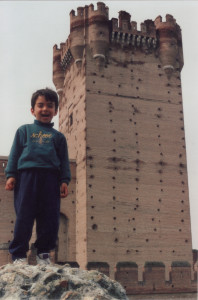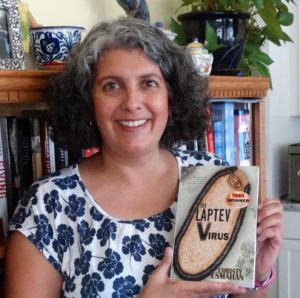“Isn’t life better here than anywhere else in the world?”
I was frequently asked this question when I first moved to Spain in the mid 1980’s, often by older folks, parents of my fellow graduate students. Having been raised in the U.S., proudly saying the pledge of allegiance to my flag every day, and so thankful to have been born in the best country in the world, it was jarring to hear this rhetorical question about a different land.
Wait a minute, I wanted to say, we’re in Spain. America is the best place in the world. Doesn’t everyone know that? But I would hold my peace and nod insincerely; sure, it’s a great place, yeah. The haughty American in me knew better—these poor people just didn’t understand how unfortunate they were not to have been born and raised in the US of A.
Then I got some good scholarships , decided to stay in Spain indefinitely and a strange thing happened: I was immersed in their culture, their food, their heritage, their language, their landscapes…and something in me began to shift. I began to question the foundation of what I’d been taught from infancy, and found that, hey, people who had never set foot in America led happy, comfortable, meaningful and fulfilling lives. They lacked nothing from having never been Americans. It was astounding to me.
And slowly I too became Spanishified. It helped that I had black hair, (I was frequently asked if I was sure that I was American—weren’t they all blond?) and although I was darker complected than most Spaniards, I had learned to speak Spanish as a child and my accent was good. I had to work on acquiring the Castilian intonation, but being the only foreigner in the small city of León, I had an endless supply of eager teachers. I thought in Spanish, dreamt in Spanish, became passionate about Spanish issues, and wrote and defended my dissertation in Spanish. Over the years the questions people asked about my home country changed from, “Where in Latin America were you raised?” to “What part of Spain do you call home?”
Just as the main character in my novel, Harvey Jones, falls in love with northern Spain, so did I. I married a Spaniard from Bilbao and had a little boy, born in a Spanish hospital, twenty two years ago today. And then my world changed again: as a parent I did not want to deprive my son of being American, but neither did I want him to miss the opportunity of being Spanish. We decided to raise him bilingually, a true challenge when you are fluent in the host country language but are resolved to teach him your home country language. We lived in Spain until he turned 8 years old, and there were many times when it would have been so much easier to speak to him in Spanish, to avoid standing out as foreigners, and to not separate ourselves from family members who spoke no English, but I knew it was a slippery slope and that the only way to make sure my son would speak perfect American English was to speak it to him 100% of the time.
Fast forward twenty two years and I now have a perfectly bilingual adult son who is proud of both of his heritages, and is comfortable on both sides of the ocean. And I can’t help but wonder if the world wouldn’t be a better place if everyone had the chance to become immersed in another culture and grow to realize how imperative it is for us all to see each other as fellow citizens of this small planet. The really huge issues like poverty, the global climate crisis, and pandemics will only be solved when we can all look each other in the eye and say, “Isn’t this the best world to live in?”
If you enjoyed this blog post, you might also like my series of novels, Bueno, Sinco and Brujas, which takes place in Santander, Spain.



